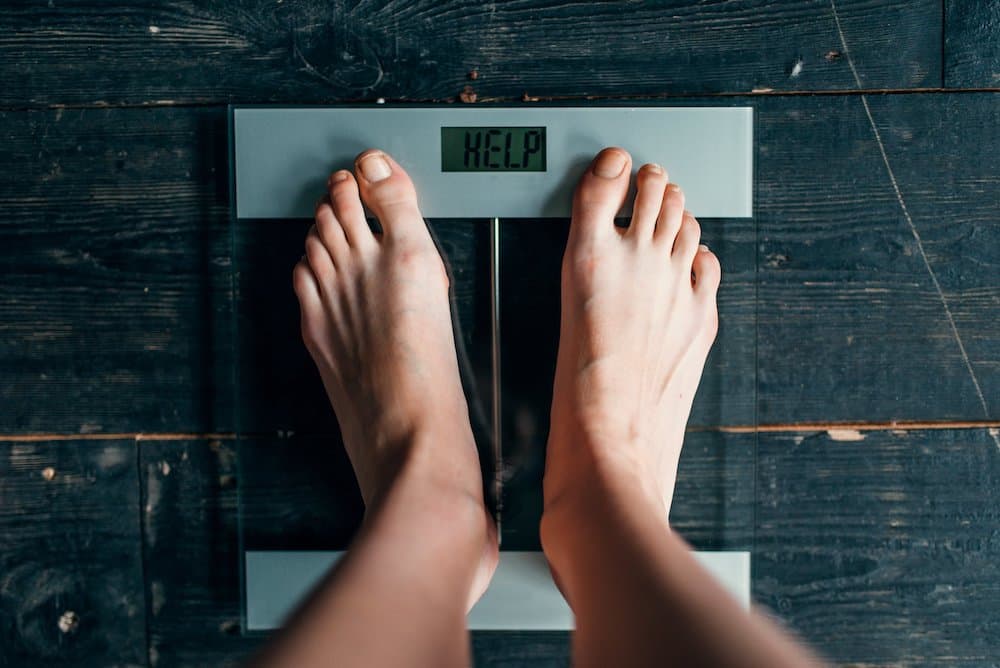
2021-12-29T14:03:24
How to Make New Year’s Resolutions you can Actually Keep
- Weight Management
- Wellness Institute
September 6, 2017 | Wellness Institute

If your goal is weight loss, exercise by itself won’t help you lose weight.
This is not to say that exercise isn’t good for you; it is, in fact, great for you. It conveys an astonishing array of health benefits. But—and we all hate hearing this—many experts say the primary villain when it comes to excess weight is what’s on our menu. To lose weight, we should cut calories, eat more fruits and vegetables, and choose less added fat and refined sugars.
“I think the role of exercise in weight loss is highly overrated,” says Marc Reitman, chief of the diabetes, endocrinology and obesity branch of the National Institute of Diabetes and Digestive and Kidney Diseases, or NIDDK. “I think it’s really great for being healthy, but I’m a strong believer that overeating is what causes obesity. To exercise your way out of overeating is impossible.”
Michael Joyner, a Mayo Clinic researcher who studies how people respond to the stress of exercise, agrees. “The key for weight loss is to generate and maintain a calorie deficit,” he says. “It’s pretty easy to get people to eat 1,000 calories less per day, but to get them to do 1,000 calories per day of exercise—walking 10 miles—is daunting at many levels, including time and motivation,” he says.
Some people can work the weight off. These include those who exercise vigorously for long periods and professional athletes, who typically engage in high-intensity workouts. The problem is high-level workouts are not something that most people do or even have time for. Walking for an hour daily won’t do it.
Moreover, moderate exercise doesn’t really burn all that many calories, especially when you think about a single piece of chocolate cake, which contains between 200 and 500 calories. Most people burn only about 100 calories for every mile of running or walking, although this can vary depending on the person, according to Joyner.
Put another way, to lose one pound, you must run a deficit of about 3,500 calories—meaning that if you burn an excess 500 calories a day, it would take a week to drop that pound. Kevin D. Hall, a NIDDK scientist who studies how metabolism and the brain adapt to diet and exercise, agrees that a modest degree of weight loss would require large amounts of exercise.
No! Exercise remains one of the best things you can do for yourself. It enhances health in numerous ways. It strengthens the heart and lungs and it also reduces the risk of Type 2 diabetes and metabolic syndrome, a collection of symptoms that include hypertension, high blood sugar, excess body fat around the waist and abnormal cholesterol or triglyceride levels.
Weight-bearing activities, such as running, walking or playing sports, strengthen bones and muscles. Having strong bones prevents osteoporosis, helping to avert bone-breaking falls in the elderly stage of life. Exercise also reduces the risk of certain cancers, including breast and colon cancer. It elevates mood, and it keeps thinking and judgment skills sharp.
Overall, it helps you live longer. People who work out for about seven hours a week have a 40 percent lower risk of dying early compared with those who exercise less than 30 minutes a week, according to the Centers for Disease Control and Prevention.
Sources
Centers for Disease Control and Prevention. (2017, April 10). Strategies to prevent obesity. Retrieved September 1, 2017 from https://www.cdc.gov/obesity/index.html.
Cimons, M. (2017, August 12). Exercise does so much for you. Why won’t it make you lose weight. Washington Post. Retrieved September 1, 2017.
National Institute of Diabetes and Digestive and Kidney Diseases. (2017, April). Walking: A step in the right direction. Retrieved September 1, 2017 from https://www.niddk.nih.gov/health-information/weight-management/walking-step-right-direction.
WRITTEN BY:
The Live Better Team

2021-12-29T14:03:24

2019-07-22T16:27:23

2019-01-10T09:28:19

2019-01-02T08:00:06
This information is not intended to replace the advice of a medical professional. You should always consult your doctor before making decisions about your health.